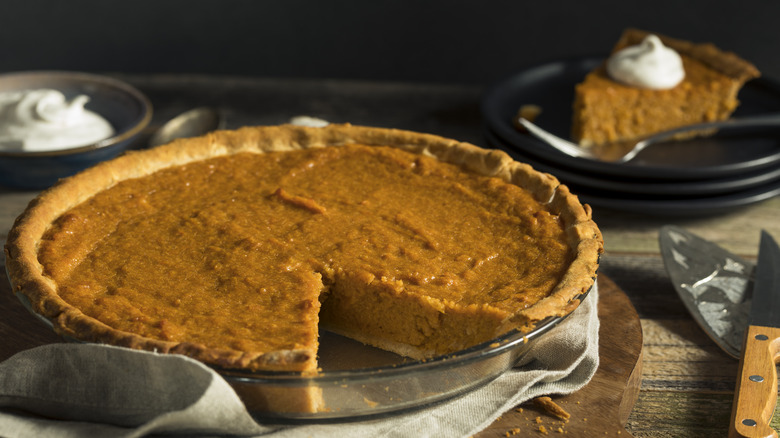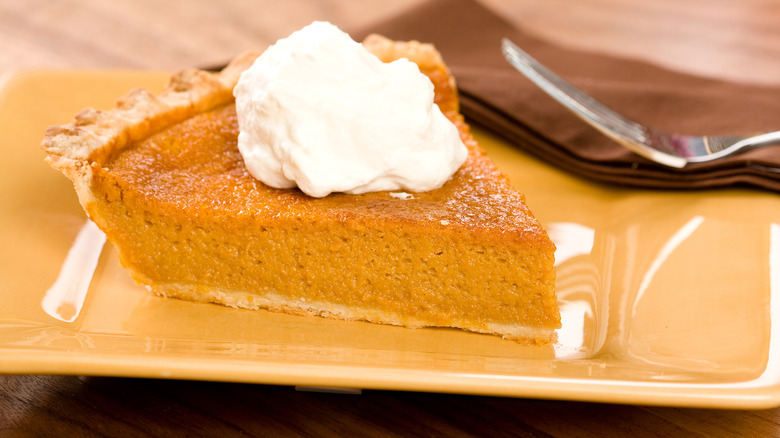Where Did Sweet Potato Pie Originate?
While making a classic pumpkin pie can be a bit more of a straightforward process — particularly when canned pumpkin is involved — preparing sweet potatoes for their inclusion into a pie recipe can be a bit more laborious. Sweet potatoes have to be boiled, peeled, and mashed before they can be folded into even a simple sweet potato pie recipe. But regardless of the work required, sweet potato pie can foster feelings of warmth, comfort, and nostalgia.
In Africa, yams and cassava were used in dishes before sweet potatoes, yet in the America South, sweet potatoes were more convenient to come by and reminded many African-Americans of the yams from home. As European settlers tried to turn layers of sweet potato pie into something that resembled carrot pie and told slaves which recipes to make for their masters, the slaves made pone for themselves, a sweet potato treat sweetened with molasses and flavored with spices. Pone didn't require the kind of flour or baking utensils that other kinds of desserts required. Instead, the dish could be made simply in a hearth, using mashed sweet potatoes roasted in open fires. These origins lead to the evolution of sweet potato pies.
Sweet potato pie's history goes back to the 1700s
Once stoves could be accessed to make the treat, recipes became more complex, and sweet potato pies were baked and served. In warm Southern American states, sweet potatoes grew easily. Although there is no definitive pinpoint for the first sweet potato pie recipe, there are culinary records indicating that Europeans in the 1700s were putting sweet potatoes and pumpkins in desserts. Americans followed suit, and the wealthy instructed their cooks to use vegetables in pies. While the sweet potato reigned in the American South, pumpkins were a commonly used ingredient in the American North, and autumn harvests became linked with seasonal holidays like Thanksgiving.
Sweet potato pie has held its ties to the resiliency of African-American slaves, and as food historian Adrian Miller notes to Southern Kitchen, "It's a taste of home. It's a taste of church. It's the taste of family reunions. You know those settings where you can kind of escape from everything else that's happening in the world. You've got this bond, you're feeling the love." While a buttery pumpkin pie might deliver quick comfort, the stories and history baked into a sweet potato recipe continue to live on.

